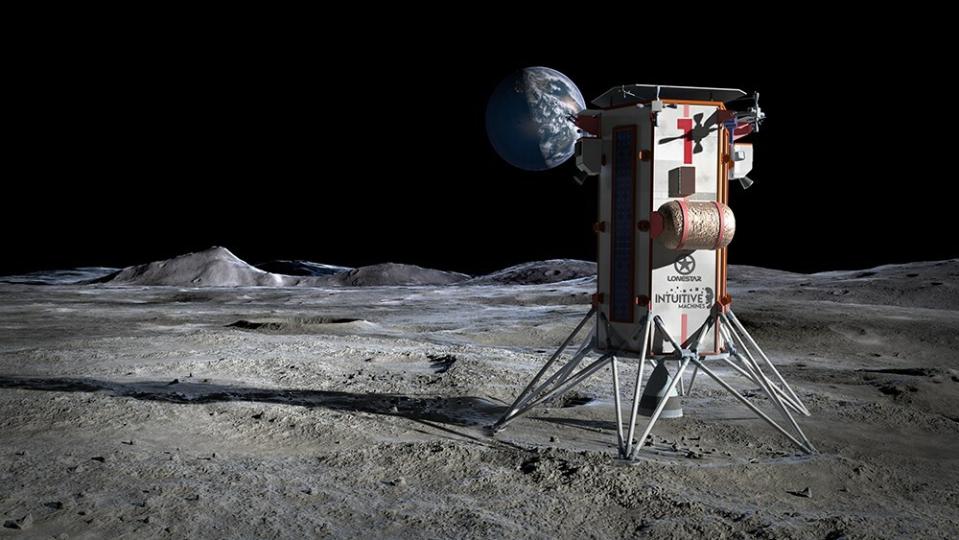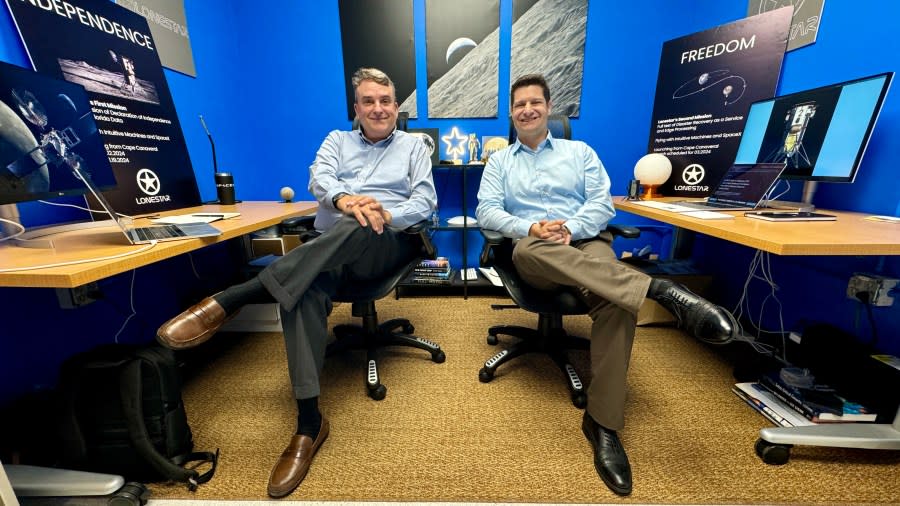St. Pete start-up aims to revolutionize data storage on the moon
ST. PETERSBURG, Fla. (WFLA) — A St. Petersburg start-up is looking to make history this year, with the first-ever “off planet data center” on the moon.
“Just basically protecting all of humanity’s data from Earth’s largest satellite,” said Chris Stott. “The moon.”
This is far from a lofty goal for Lonestar Data Holdings and its founder and CEO, Christ Stott.
“That’s going to be the first ever data center sent off planet,” Stott said. “Physical, hard data center.”

A data center on the moon came out of clients asking Stott to protect their data from Earth. Data stored in the “cloud” is actually stored in massive data farms in the middle of open areas, and Stott wants to put those farms on the moon.
“Down here is where we have all the wars, all the storms, all the power cuts, all of the accidents,” Stott said. “How do we protect our data so it’s safe, secure, accessible and under sovereignty? And we do that up in space.”
In February, Lonestar already made strides toward its goal with the Independence mission. The start-up transmitted documents off-planet for storage on a lunar lander on the surface of the moon, starting with a copy of the Declaration of Independence.
“We’ve gone from science fiction to science fact,” said Jim Burns-Montante. “We’re on the moon, we’re continuing to go to the moon. The lunar economy is no longer a PowerPoint slide.”

Burns-Montante is Lonestar’s chief engineer.
“What we’re looking at is not so much an issue how long it takes us to bounce this signal there and back,” Burns-Montante explained. “But instead, we’re trying to figure out how fast we can take a large amount of data and get it back to the Earth.”
Burns-Montante and his team are in charge of solving the many problems that come with operating on the moon.
“How do you design electronics that survive the harsh environments of space?” said Burns-Montante. “The temperature swings, the radiation. All the things the science fiction people talk about and have written about.”
They continue to problem solve, with their next launch coming up soon. This second mission, named Freedom, will launch later this year.
“The five-year-old in me, I have to pinch myself, because I’m like, ‘Wow, this is awesome,'” said Stott. “Then I’m like, ‘Phew, okay, deep breath, right. Now we have to work.'”
Copyright 2024 Nexstar Media, Inc. All rights reserved. This material may not be published, broadcast, rewritten, or redistributed.
For the latest news, weather, sports, and streaming video, head to WFLA.

